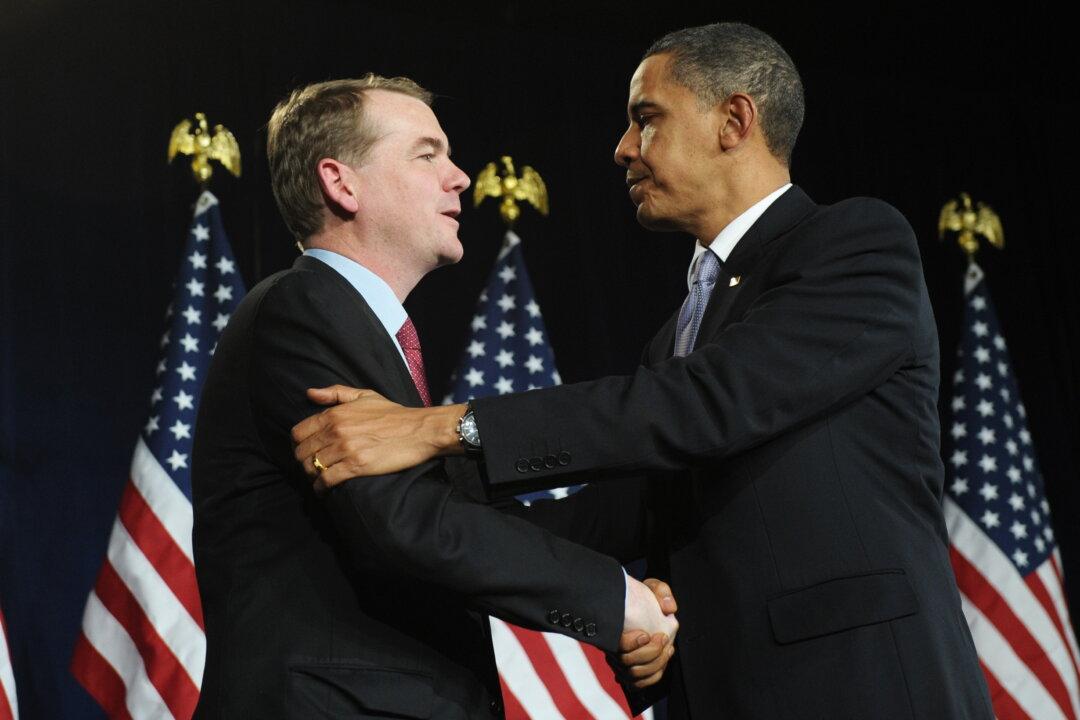WASHINGTON—Colorado Sen. Michael Bennet on May 2 became the 22nd Democrat seeking his party’s 2020 presidential nomination and the 13th from Congress with virtually identical extremely liberal voting records.
“I think this country faces two enormous challenges, one is a lack of economic mobility and opportunity for most Americans and the other is the need to restore integrity to our government,” Bennet, 54, said during an interview with “CBS This Morning” co-anchor John Dickerson.





